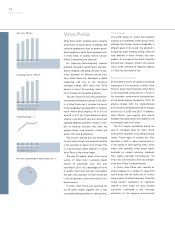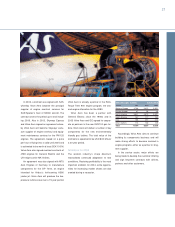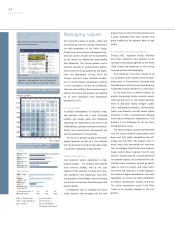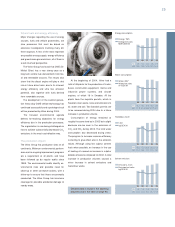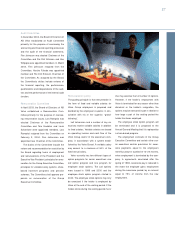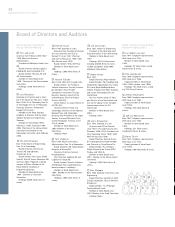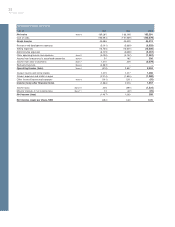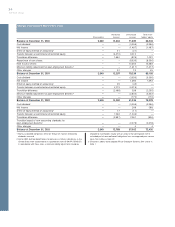Volvo 2003 Annual Report Download - page 29
Download and view the complete annual report
Please find page 29 of the 2003 Volvo annual report below. You can navigate through the pages in the report by either clicking on the pages listed below, or by using the keyword search tool below to find specific information within the annual report.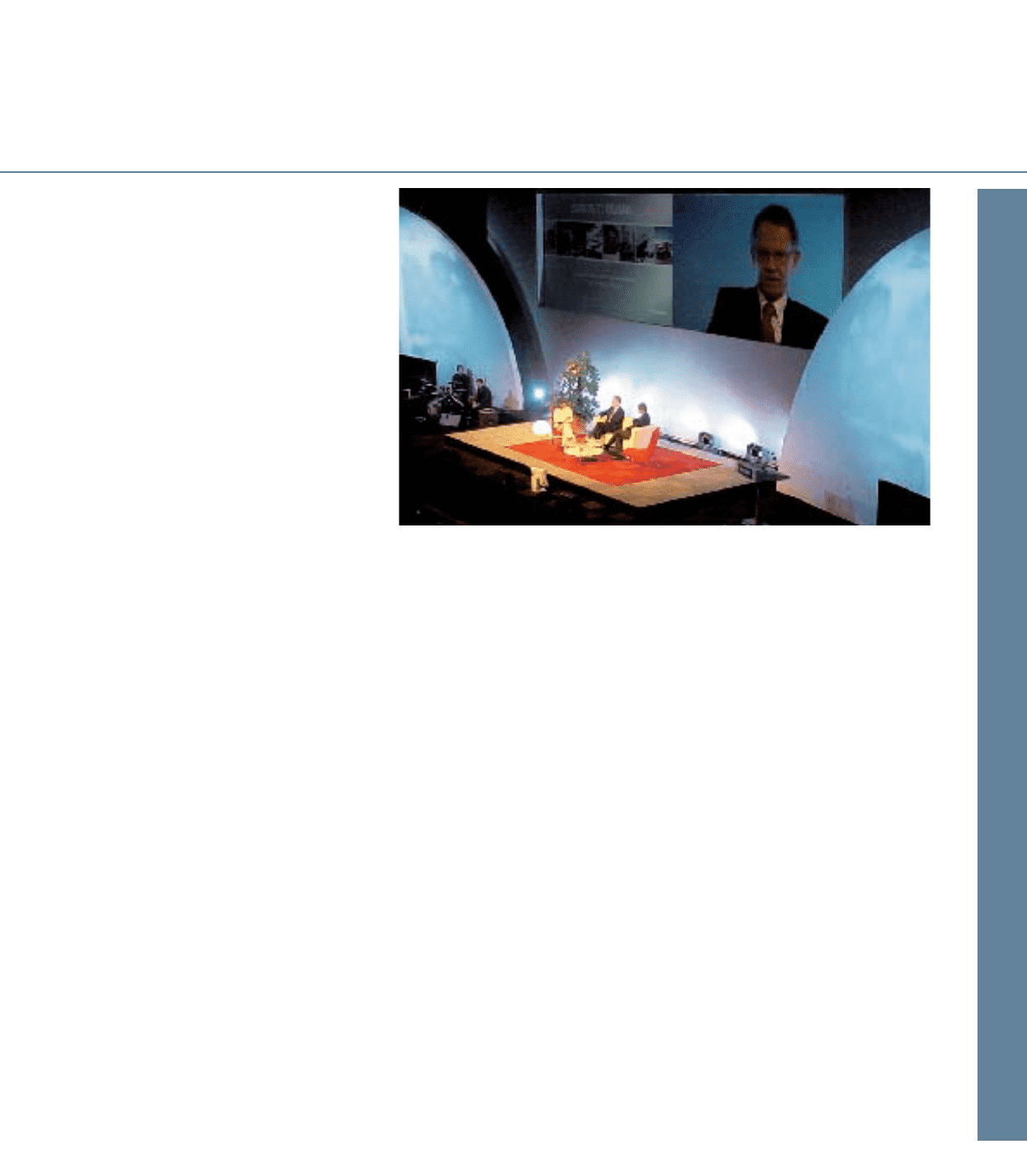
27
Remuneration policy
The guiding principle is that remuneration in
the form of fixed and variable salaries for
Volvo Group employees is prepared and
decided by the employee’s superior, in con-
sultation with his or her superior, “grand-
fathering”.
Leif Johansson and a number of key ex-
ecutives receive variable salaries in addition
to fixed salaries. Variable salaries are based
on operating income and cash flow of the
Volvo Group and/or of the executive’s com-
pany, in accordance with a system estab-
lished by the Volvo Board. A variable salary
may amount to a maximum of 50% of the
fixed annual salary.
Volvo currently has two different types of
option programs for senior executives: one
call option program and one program for
employee stock options. The call options
were issued in 1999 and 2000 and the
employee stock option program started in
2000. The employee stock options may only
be exercised if the holder is employed by
Volvo at the end of the vesting period. If the
holder retires during the vesting period, he or
Audit Committee
In December 2002, the Board of Directors of
AB Volvo established an Audit Committee
primarily for the purpose of overseeing the
accounting and financial reporting processes
and the audit of the financial statements.
Finn Johnsson was elected Chairman of the
Committee and Per-Olof Eriksson and Ken
Whipple were appointed members. In March
2004, Finn Johnsson resigned from the
Committee. Haruko Fukuda was appointed
member and Per-Olof Eriksson Chairman of
the Committee. As assigned by the Board,
the Committee's duties include reviews of
the financial reporting, the performance,
qualifications and independence of the audi-
tors and the performance of the internal audit
function.
Remuneration Committee
In April 2003, the Board of Directors of AB
Volvo established a Remuneration Com-
mittee primarily for the purpose of oversee-
ing remuneration issues. Lars Ramqvist was
elected Chairman of the Remuneration
Committee and Tom Hedelius and Louis
Schweitzer were appointed members. Lars
Ramqvist resigned from the Committee on
February 2, 2004. Finn Johansson was
appointed new Chairman of the Committee.
The duties of the Committee include the
review and recommendation for resolution by
the Board regarding terms of employment
and remunerations of the President and the
Executive Vice President, principles for remu-
neration for the Group Executive Committee,
principles for variable salary systems, share-
based incentive programs and pension
schemes. The Committee shall approve pro-
posals on remuneration of the Group
Executive Committee.
she may exercise the full number of options.
However, if the holder’s employment with
Volvo is terminated for any reason other than
dismissal or the holder’s resignation, the
options may be exercised in part in relation to
how large a part of the vesting period the
holder has been employed.
The employee stock option program will
be terminated and it is proposed to the
Annual General Meeting that it is replaced by
a share-based program.
The employment contracts of the Group
Executive Committee and certain other sen-
ior executives contain provisions for sever-
ance payments, equal to the employee’s
monthly salary for a period of 12–24 months,
when employment is terminated by the com-
pany. In agreements concluded after the
spring of 1993, severance pay is reduced in
the event the employee gains employment
during the severance period, by an amount
equal to 75% of income from the new
employment.



